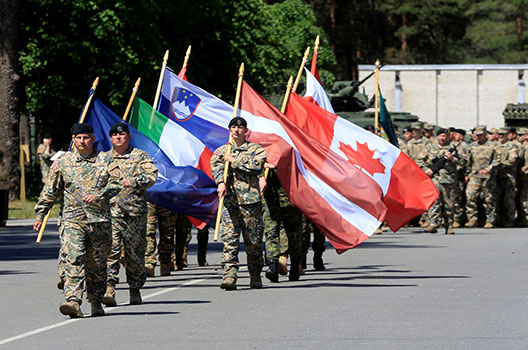The original intent of NATO was to place Western Europe under the protective nuclear umbrella of the US. From that perspective, the US was stating that it would destroy the USSR if it attacked a member country. With the development of the USSR's nuclear capability in the 1960s, this idea morphed into a Mutual Assured Destruction (MAD) deterrent to Soviet attack.
Now that the USSR has broken up, is this line of thinking still relevant? Western Europe now has twice the population and ten times the GDP of Russia, and at least two of its countries possess their own nuclear deterrents. Why should the US still be responsible for Europe's defense when the reverse is certainly not realistic? It seems that NATO is little more than an excuse to drag the US into foreign conflicts.
If Western Europe really feels threatened by a Russian invasion, its has more than enough resources to defend itself. Why doesn't it?
Now that the USSR has broken up, is this line of thinking still relevant? Western Europe now has twice the population and ten times the GDP of Russia, and at least two of its countries possess their own nuclear deterrents. Why should the US still be responsible for Europe's defense when the reverse is certainly not realistic? It seems that NATO is little more than an excuse to drag the US into foreign conflicts.
If Western Europe really feels threatened by a Russian invasion, its has more than enough resources to defend itself. Why doesn't it?


